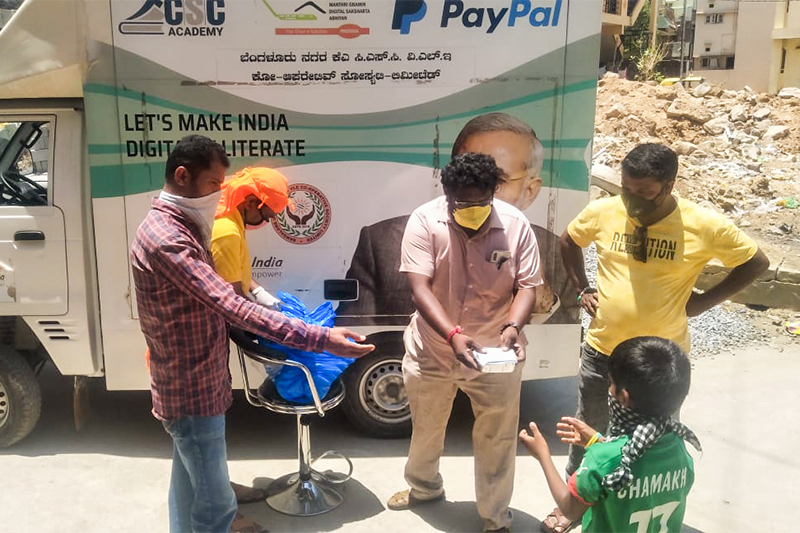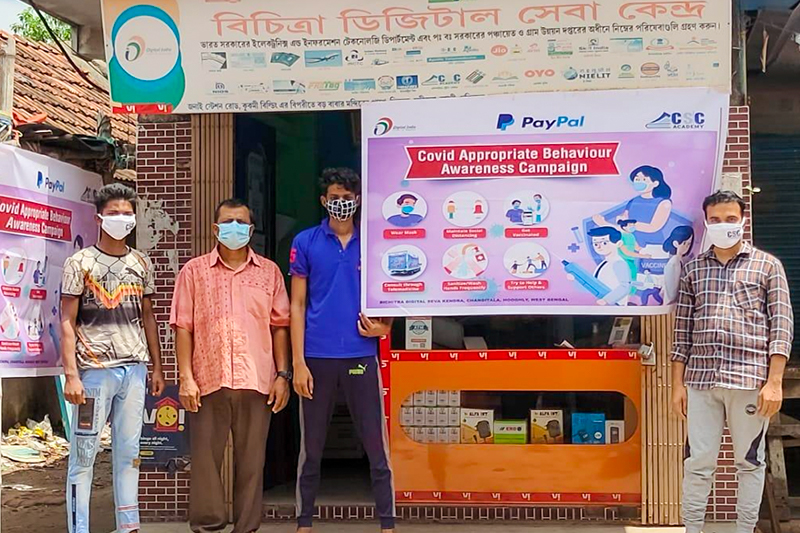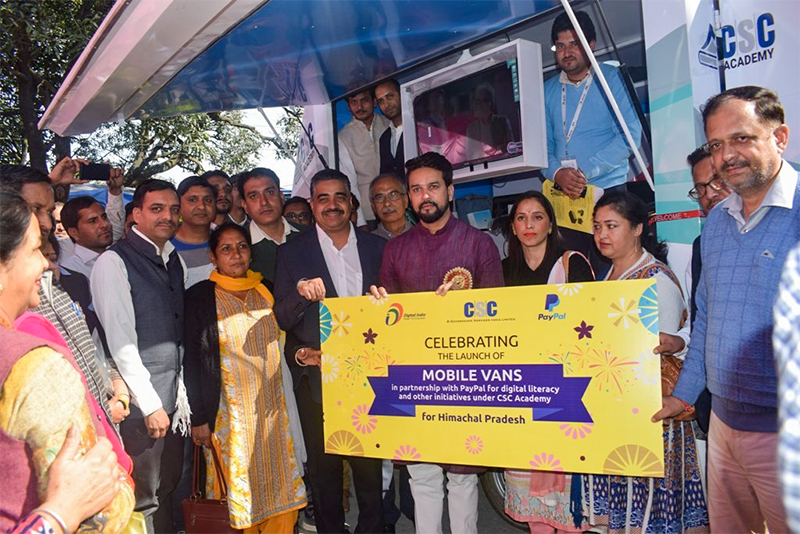50,000 village heroes, assisted by India’s Government and PayPal, play a critical role in rural India’s COVID-19 response
PayPalSocial Innovation
The impact of the COVID-19 pandemic was heavily felt across India, however the effect on rural areas were profound. Compared to urban India, villages faced larger challenges accessing medical facilities and doctors, coupled with lower awareness of vaccines and the vaccination registration process. Travelling to the nearest health center also meant losing wages and restricted movement during lockdowns posed many additional challenges.
PayPal and the Common Services Centers (CSC) of the Ministry of Electronics & Information Technology (MeITY) leveraged the vast network of CSC Village Level Entrepreneurs (VLE) to deliver services in an assisted model, earning the trust of villagers, and innovation to address the unique challenges faced in rural India. The partnership deployed 29 mobile vans to bring COVID-19 relief to villagers' doorsteps, which reduced travel and associated risks. The vans were equipped with oxygen cylinders to be used in emergencies. Cash withdrawal facilities were available and essential provisions were supplied to citizens through CSC e-stores at their doorstep. This was a boon to patients who were quarantined at home.
Trust was established by leveraging female VLEs who were trained as COVID-19 Awareness Ambassadors (CAB) to impart awareness around COVID-19 prevention recovery measures. The CSC Academy, with the help of PayPal, has trained over 50,000 VLEs, including 10,000 women, as COVID-19 Appropriate Behavior (CAB) Ambassadors to raise awareness about preventive measures against COVID-19.
Ms. Paliwal is one of the 50,000+ volunteer VLEs who drove over 3,000km across villages to spread awareness, provide supplies and access to telemedicine consultations. “We couldn't wait,” she said. “We knew that our one effort would transform lives if we took the initiative."
PayPal is also supporting CSC to set up five oxygen manufacturing plants in the cities of Bengaluru, Chennai, Patna and Jaunpur.

Mobile vans deployed across India to provide supplies, education on COVID-19
appropriate behavior and vaccines; telemedicine consultations
According to a May report from the State Bank of India, rural India represents half of India’s population and approximately half of the country's COVID-19 cases. Many in rural India do not have access to a smart phone to register for vaccinations and in some cases were unaware of the defense that it could provide against the virus. They were unable to consult doctors on how to manage the virus. This posed a huge hurdle in the India Government’s efforts to fight the rage of the pandemic.
Tajmul Ansari, a VLE worker, has helped 80 to 100 people each day to attain vaccines by driving them to and from vaccination sites. Program organizers aim to enroll 2.5 million rural citizens into the vaccination program, many of whom do not have smart phones.

A team of Village Level Entrepreneurs spread awareness
Equipped with laptops, VLEs connected the villagers with remote doctors for telemedicine consultations. Thanks to these resources, workers say they are able to schedule as many as 60 telemedicine appointments each day, reducing patients’ health risks and providing essential medical guidance.
Such services have been especially important for women in rural areas, including the sister of Avantika Sharma, a resident of Rajasthan.
“We were apprehensive about visiting the hospital as COVID-19 patients could be there,” Avantika adds. “Then, we came to know about telemedicine services. Because of this program we were able to arrange an online consultation with a female doctor, which helped in my sister’s pregnancy.”
Another critical component of the program is education and awareness. In the battle against COVID-19, governments and health officials are fighting on two fronts: the virus itself and the deluge of misinformation surrounding it. Because of this, India’s VLEs continue to play a critical role in educating residents about the virus’s myths and realities and overcoming vaccine hesitancy as well.

The launch of the mobile vans has been met with national support
Shortly after India announced its plans to vaccinate people over the age of 18, there was misinformation being spread across social media cautioning women against getting vaccinated during their menstrual cycles. Bhavna Sukhwal, a beneficiary of the program from Rajasthan in northern India, shared these concerns but heard conflicting recommendations from friends and family about what she should do. Through the Telemedicine service, she was able to get the accurate medical information she needed to feel comfortable with being vaccinated. The scope of the challenge underscores the importance of support from outside organizations like PayPal, which is committed to supporting India and its citizens during this crisis.